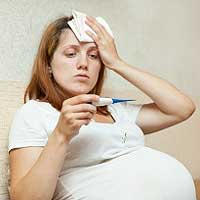The occurrence of autism spectrum disorder in American kids increased between 2018 and 2020, sustaining a long-term pattern, as per a study by the Centers for Disease Control and Prevention released on Thursday. In 2020, it was estimated that one in 36 8-year-olds had autism, a rise from one in 44 in 2018. The prevalence was about 4 percent in boys and 1 percent in girls.
Autism spectrum disorder
Processed foods during pregnancy increases autism risk in children
With the number of children diagnosed with autism on the rise, the need to find what causes the disorder becomes more urgent every day. UCF
Viral infection during pregnancy may be linked to autism-like behaviors in babies
A study published in the journal Science found that activation in pregnant mice of a particular immune response, similar to what may occur with certain
Thousand genes differences contribute to autism risk
Changes in scores of genes contribute to autism risk — Newfound genetic differences provide many hints at causes – Small differences in as many as a thousand genes contribute to risk for autism or autism spectrum disorder (ASD). This new study examined data on several types of rare, genetic differences in more than 14,000 DNA samples from parents, affected children, and unrelated individuals.
Autism linked to maternal exposure to agricultural pesticides
Autism – Study finds association between maternal exposure to agricultural pesticides – Pregnant women who lived in close proximity to fields and farms where chemical pesticides were applied experienced a two-thirds increased risk of having a child with autism spectrum disorder or other developmental delay.
Propranolol may improve working memory in autism patients
Drug could improve working memory of people with autism, study finds – People with an Autism Spectrum Disorder (ASD) often have trouble communicating and interacting with others because they process language, facial expressions and social cues differently. Previously, researchers found that propranolol, a drug commonly used to treat high blood pressure, anxiety and panic, could improve the language abilities and social functioning of people with an ASD. Now, University of Missouri investigators say the prescription drug also could help improve the working memory abilities of individuals with autism.
Folic acid in pregnancy lowers autism risk in baby
Folic acid supplements early in pregnancy may reduce child’s risk of autism by 40 percent — Large study in Norway finds early timing of folic acid supplements is critical – Prenatal folic acid supplements appear to reduce the risk for autistic spectrum disorders. It is estimated that about 1 in 88 children in the U.S. have been identified with an Autism Spectrum Disorder (ASD).
Baby communication gives clues to autism
Baby communication gives clues to autism — University of Miami researchers find that babies’ non-verbal communication skills can help predict outcomes in children at high risk of developing Autism – Approximately 19 percent of children with a sibling diagnosed with Autism Spectrum Disorder (ASD) will develop Autism due to shared genetic and environmental vulnerabilities, according to previous studies. For that reason, University of Miami (UM) psychologists are developing ways to predict the occurrence of ASD in high-risk children, early in life, in hopes that early intervention will lead to better outcomes in the future.
Autism children victims of bullying
Study details bullying involvement for adolescents with autism spectrum disorder – An estimated 46.3 percent of adolescents with an autism spectrum disorder were the victims of bullying, according to a report published by Archives of Pediatrics & Adolescent Medicine.
Autism in children linked to Father’s Age
deCODE Genetics Study Finds Father?s Age?Not Mother?s Critical to New Mutations Passed to Offspring — Nature Published Study Signals Rise in Autism Spectrum Disorder May Be Partially Tied to Increasing Age of Fathers at Time When Children are Conceived – deCODE Genetics, a global leader in analyzing and understanding the human genome, in collaboration with Illumina, a global leader in the making of instruments to analyze the genome, reported in the journal Nature that a father?s age, not a mother?s, at the time a child is conceived is the single largest contributor to the passing of new hereditary mutations to offspring.



